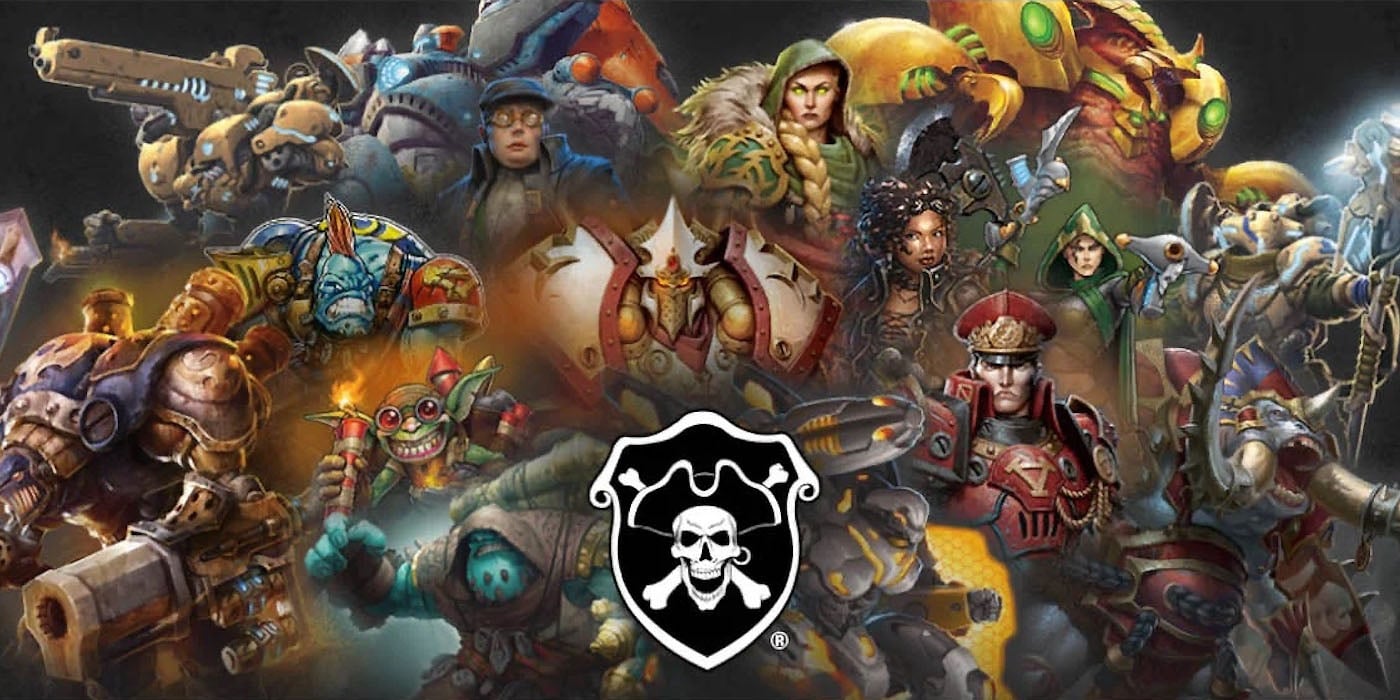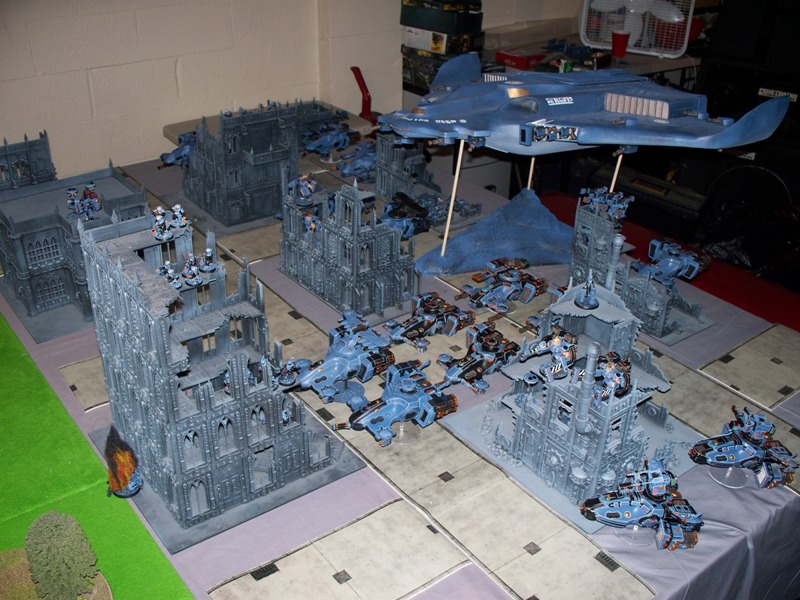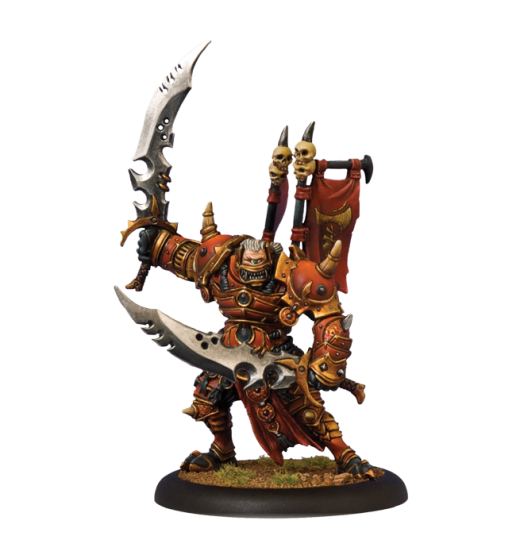EDITORIAL – How to Discuss Warmachine with Potential Players

As a member of the volunteer corps for Privateer Press (the Press Gang, for the uninitiated), I’m constantly introducing the game to new players, talking about what makes it exciting and why they should spend their time and hard-earned money on it. This process often leads to comparisons with other game systems, and finding the right way to discuss this subject can be tricky. I thought I’d touch on this a bit today.
Discussion on this subject here at Bell of Lost Souls is often pretty heated, but I think it occasionally stems from the presentation, which is sometimes veiled with the suggestion that Warmachine and Hordes (which I will refer to simply as Warmachine for the rest of this article) are better than another company’s offerings. When talking to veterans of other game systems, I’ve always avoided this approach for a few reasons, the most important of which being that a game’s quality is largely a matter of opinion. If I were to discuss why Warmachine is better than 40k, I’d be poking a hornet’s nest without really convincing anyone of anything except of my own hubris. If a person gets enjoyment out of playing a game, who the hell am I to suggest that their game-of-choice is inferior, as if to imply that the fun they’ve been having is a lie clouded in ignorance? I like to instead focus merely on what makes the games different from each other, while acknowledging what I like about those differences on both sides of the fold.
For example, in terms of scale, I think that Warmachine works better at the lower end. Due to the level of dynamism and interaction of Warmachine, a new player will most often get a lot of enjoyment by playing with the contents of their $50 starter box for several weeks before feeling the need to start increasing their army size. It can be so much fun, in fact, that I can’t recall the last time I’ve seen even a veteran turn down a new player for a starter box game. I don’t feel that either Warhammer game does that particularly well. 500 point games of 40k just seem a bit empty to me, without intensity or excitement, and I know many veterans of 40k just wouldn’t be into that level of play. However, the opposite applies here as well. Large games of Warmachine (i.e. games larger than 100 points) are a bear. The skirmish-style dice and combat mechanics of Warmachine make those larger games a headache. There’s just far too much bookkeeping and too many potential angles and combinations of buffs that can be exploited without warning. 40k, on the other hand, works great at a larger scale (3,000 points and up) for many reasons, mainly that their targeting rules and dice mechanics make large scale play much faster and more enjoyable. There’s also the point to be made that there’s an entire subsidiary of Games Workshop dedicated to making these huge games more special. The Thunderhead is cool, but a Reaver Titan or Hierophant are amazing.
I often talk about Warmachine as an intense game, and I think anyone that’s given the game a fair shake would admit heartily that intense it is. The chess mechanic of having a model that is equivalent to your king means that playing Warmachine is like walking the edge of a knife. If you lose your balance for a second, it can mean the game’s end. To many, that level of intensity is magnetic, but to others who are looking for a more relaxed atmosphere, the implied magnitude is just too much. Hell, the highest levels of play require players to use timers or even chess clocks. While I’m personally a fan of that type of play, I completely get where another gamer might be entirely turned off by the prospect of using a timer for tournament play.
I mentioned before how Warmachine is a particularly dynamic game, which is another important aspect that should be distinguished. The extent to which buffs and debuffs can be thrown around is near maddening. One very extreme example is Molik Karn. By himself, Karn is a monster capable of laying down big damage from decent range. When the buffs start stacking, like Rush from a Gladiator for increased threat range and Pathfinder, Epic Makeda’s bond for an extra point of fury, her feat for increased accuracy and immunity to free strikes, Leash and Road to War for increased threat range, and the Paingiver’s Enrage for increased damage output and a free charge, you go from a solid warbeast to an over-the-top, kill-’em-all powerhouse. There are seven independent buffs at play there. Seven.
This is another point at which opinions start to greatly divide. Many see that level of interaction and scoff at the sheer convoluted nature of what’s possible, while others see a puzzle that they need to solve. Veterans of Magic: The Gathering, Malifaux, or Warhammer Fantasy (depending on the army you’re playing) are often familiar with this type of play, and might see it as a familiar and welcome analogue. Veterans of 40k, Mechwarrior: Dark Age, or Starship Troopers usually haven’t seen this type of in-game interaction before, and may consequently find it unattractive. There certainly are buffing/debuffing interactions in 40k (psychic powers like Doom, Guide, or Fortune, Litanies of Hate, Faith Points), but they aren’t present in anywhere near the volume as seen in Warmachine. It’s a natural response for me to see a 40k veteran dislike the overt complexity of Warmachine, preferring the subtle machinations of a properly executed strategy in 40k. It’s also common for me to see a Warmachine player see 40k as “simple” when playing the game well is anything but.






